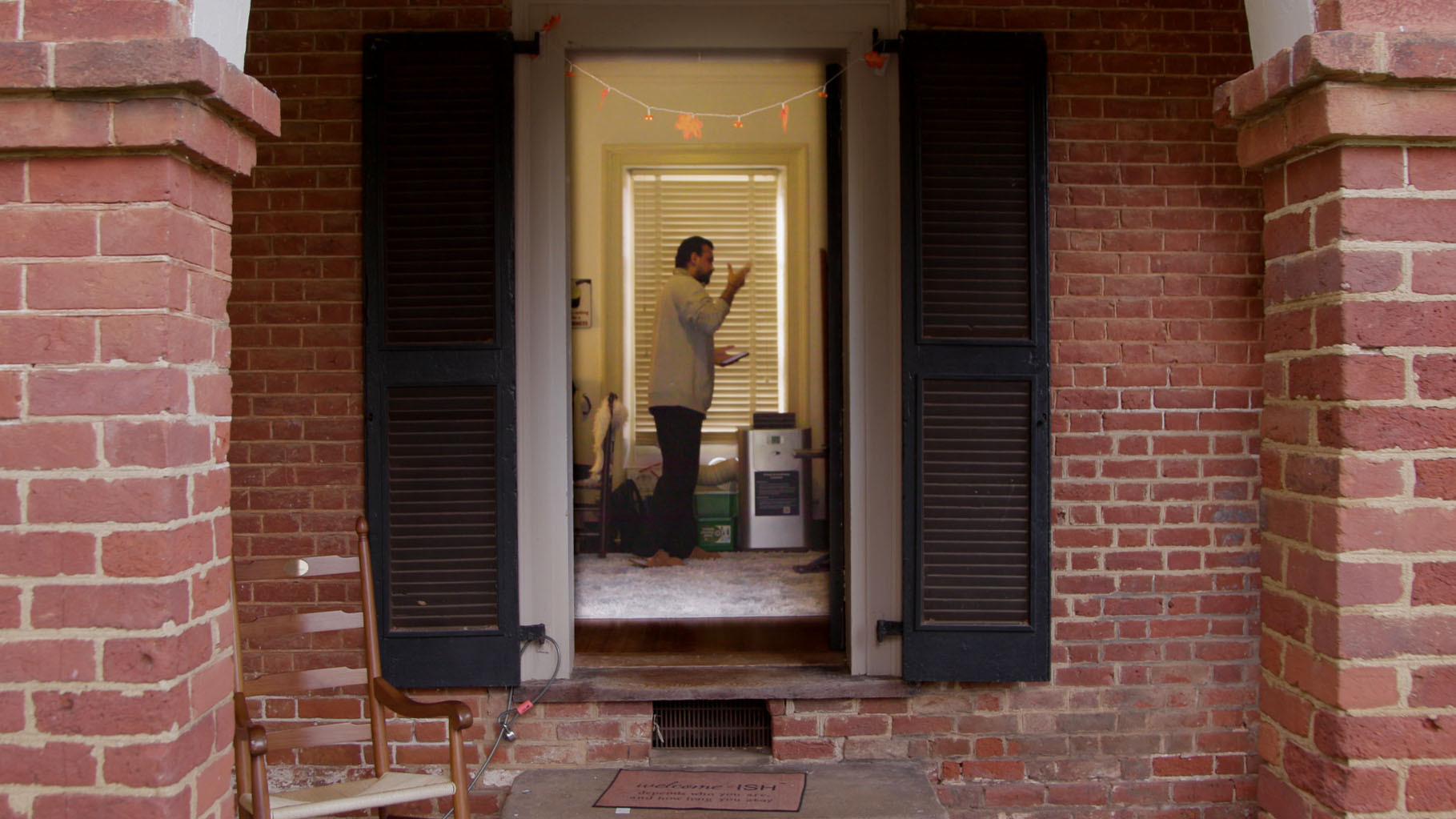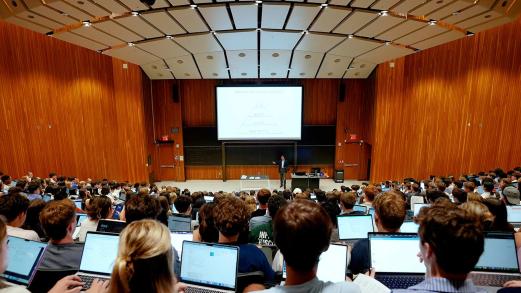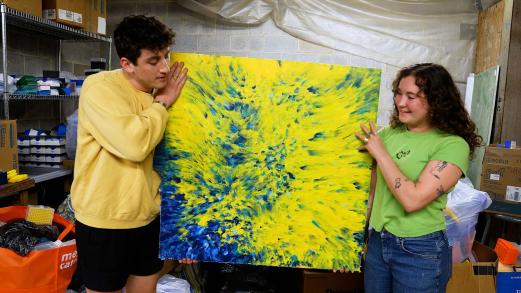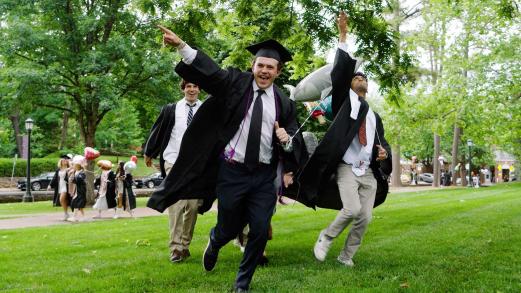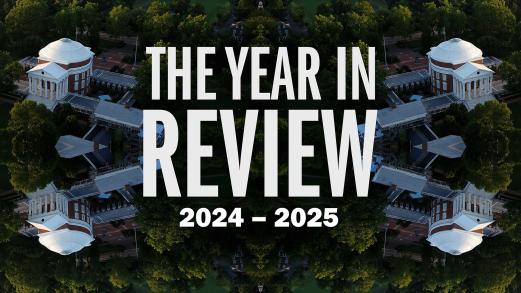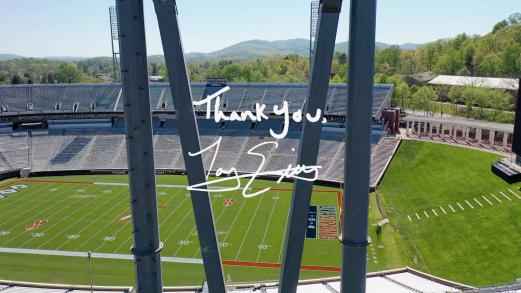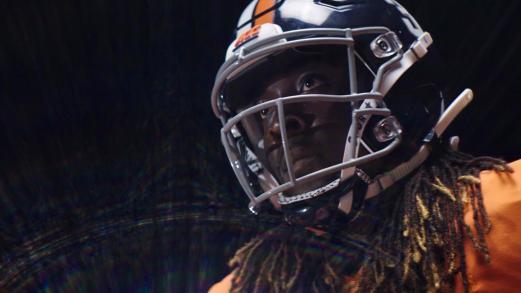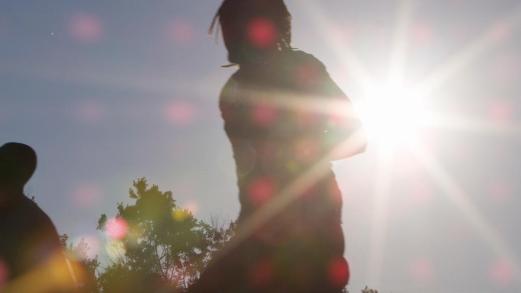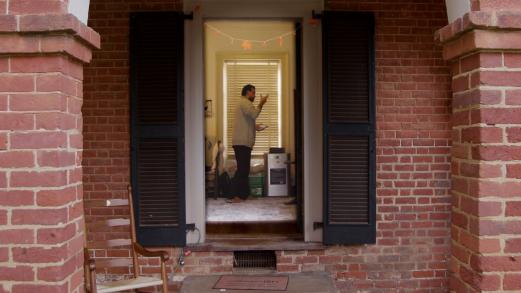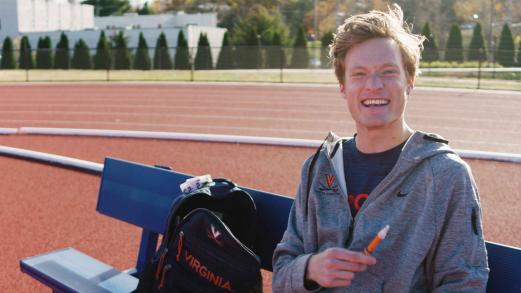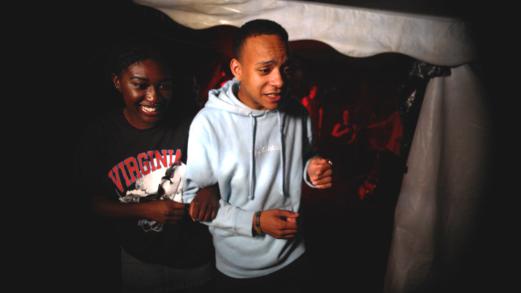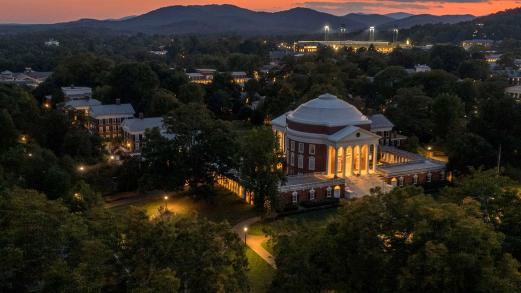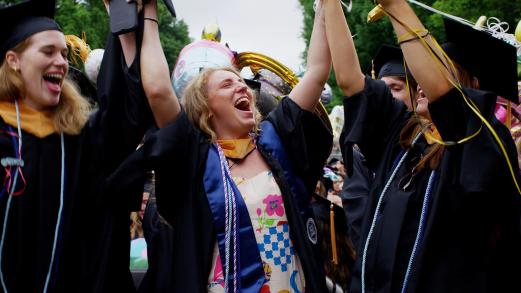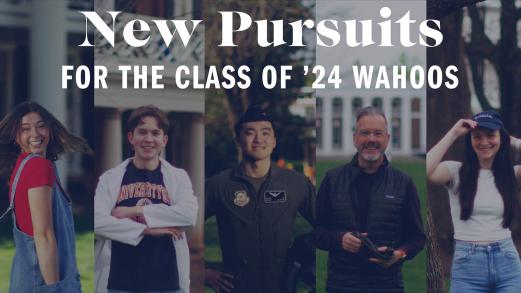Abhishek Kulkarni:
[Kulkarni on stage: What’s up, Charlottesville?]
[Kulkarni on stage: How’s everybody doing tonight?]
When I was younger, I was always proud of myself when I made someone laugh.
[Laughter]
It's quite a powerful feeling. When you convince strangers that what is funny to you is funny to all of these people from diverse backgrounds, and they all just unify in this one idea that yeah, we all agree that this is funny.
[Laughter]
When I went through my internships in undergrad, one in asset management and one in investment banking. I pretty much hated both of those areas. That's when I thought, let's just get on stage and see what that's like.
My flatmates were discussing on the side I tend to do a lot of observational humor I'm just very curious about things.
[Kulkarni on stage: Did that, like change your mind?]
I realized that I can apply a lot of the skills that I gained as a comedian and apply them to something which I consider more meaningful, which is something like academic research and teaching. That's when I did like a hard reset.
I went and did a master's program, and I got this opportunity to apply to Darden, doing a Ph.D. in business. I think one of the reasons I was among the shortlist was because of my standup experience.
When you teach in a classroom, you cannot predict where and which direction the lecture is gonna go. You need like a standup comedian skill set to manage that unpredictability.
[Kulkarni on stage: Ok so it’s about large cars.]
[Kulkarni on stage: You guys have large, massive, big...]
When I think of a joke, I start by questioning can we do something differently?
[Kulkarni on stage: Do I need ‘that’s’? That’s...no]
Taking that element to research helps me think about the most fundamental assumptions of society.
[Kulkarni on stage: The only thing mini about that van is the soccer mom driving it.]
The first week at Darden I found that there's this open mic in Charlottesville I was a nervous wreck because firstly I had most of my material back home was in Hindi, so I had to translate a lot of the jokes.
I realized you guys have some massive cars. Like your cars are so large, I could park inside your car. My classmates all of them showed up they were all there till the end of the show.
I’m standing by the side of the road, some guy decides to stop right next to me. Please cross, cross the road. I have crossed that road out of sympathy for that driver. I was standing at a bus stop.
With standup, once you question the assumption, you just go and deliver a punch line, you get an applause
and that's your validation. With research, you take that assumption, question it, run a huge experiment, and maybe you might get some validation in the future.
But that validation, I feel, is a lot more meaningful because I mean, the audience in standup is very fickle.
[That’s been my time guys, you’ve been a lovely audience.]
